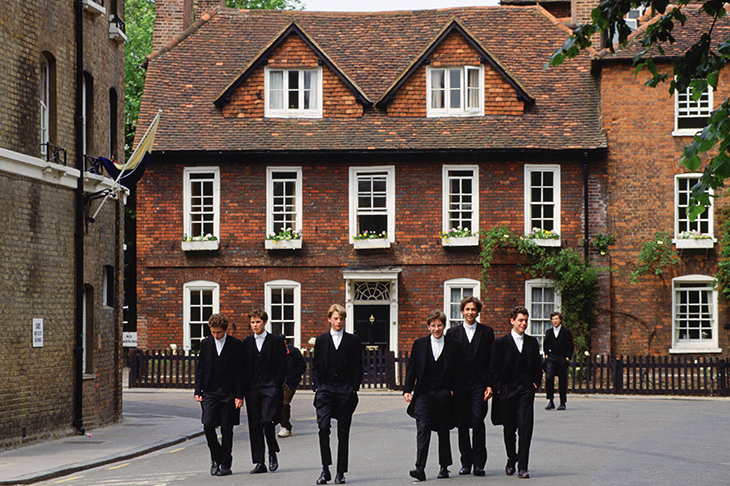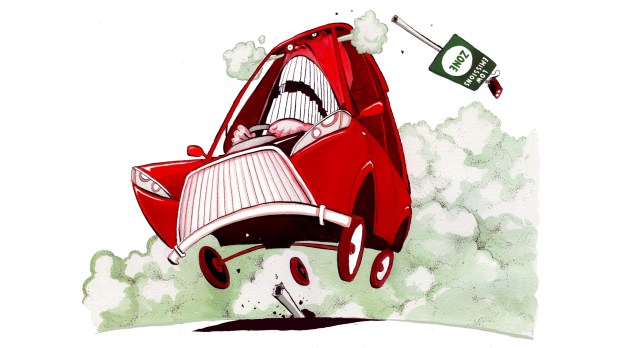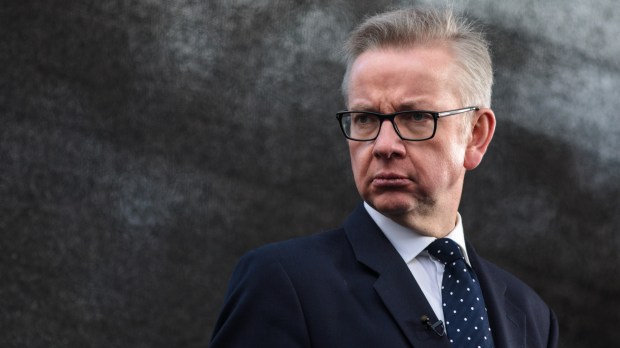You have to admire the Sutton Trust’s PR skills. For those who don’t know, the Sutton Trust is a social mobility thinktank that is constantly drawing attention to just how unmeritocratic contemporary Britain is. Every time it produces a report about the dominance of the privately educated Oxbridge elite, the media slavishly regurgitates it, even though the Trust has been churning out essentially the same report every year since it was founded in 1993, and even though, according to the Trust, 40 per cent of people in the media went to independent schools and 39 per cent to Oxbridge. You’d think the stubborn survival of the English class system wouldn’t come as a shock to them, but apparently it does, judging from their breathless, scandalised reaction each time the Sutton Trust points it out.
In the latest report, released on Tuesday, we’re told that two-fifths of Britain’s ‘elite’ attended private schools, including 43 per cent of the England cricket team, 48 per cent of FTSE 350 CEOs and 59 per cent of permanent secretaries. This in spite of the fact that only 7 per cent of British adults were educated privately. For Oxbridge, the discrepancy is worse. A measly 1 per cent of the population went to one of those two universities, yet their alumni account for 44 per cent of newspaper columnists, 57 per cent of the cabinet and an eye–watering 71 per cent of senior judges.
Cue howls of outrage from the usual suspects. ‘Our top professions are a closed club, dominated by a wealthy and privileged elite who attended the same private schools,’ thundered Jeremy Corbyn. ‘Labour will give every child the chance to flourish and radically transform society — to break the cycle of entrenched privilege.’ Needless to say, Corbyn did not add that, as a privately educated person himself, he would be stepping aside in favour of Angela Rayner, and there was no mention of John McDonnell, who went to a private Catholic boys’ school.
How reliable is this meritocracy audit? It’s pinch-of-salt time, I’m afraid. Take the ‘7 per cent’ figure. Turns out that’s the percentage of British 16-year-olds who were at fee-paying schools in 2017-8. But why not 18-year-olds, given that nearly all the members of the elite professions have done A-levels? The answer is that 16 per cent of 18-year-olds are educated at private schools, according to the Independent Schools Council. Still anomalous, but less so.
Then there’s the fact that, for the most part, the Sutton Trust has examined the educational background of people at the top in fields such as law, business and the civil service. The focus of the report is power and influence in modern Britain, so that’s fair enough, but it does mean that the people under the microscope are predominantly middle-aged. The upshot is that the report tells us how unequal educational opportunities were 25 years ago, when those folks were at school, rather than today, when things aren’t as bad. As recently as 1993-4, the percentage of A-level students getting three As who were from independent schools was 42 per cent; by 2017-18, it had fallen to 28 per cent.
More importantly, the report overlooks the fact that all the top independent schools, where many of the elite hail from, not to mention Oxford and Cambridge, have become meritocratic institutions. Not wholly meritocratic, to be sure, but no longer finishing schools for scions of the ruling class. Even 25 years ago, you had to do pretty well in Common Entrance to win a place at a first eleven public school, and the bar has risen since, with more places being set aside for clever children from modest backgrounds.
At Eton, for instance, 21 per cent of pupils in 2015-6 were on bursaries, with 73 of them paying no fees at all. It’s not surprising, then, that the products of these highly selective schools are over-represented in the elite professions, just as grammar school pupils are. The solution is to make these top schools even more meritocratic and drive up standards in state schools. One thing that goes unmentioned in the report is that a state sixth form in East London received 41 Oxbridge offers this year, higher than the majority of private schools.
To be fair, Sir Peter Lampl, the founder of the Sutton Trust, has been lobbying the government to bring back the assisted places scheme, making it easier for bright children from disadvantaged backgrounds to attend private schools. Things may not be as bleak as his report suggests, but more power to his elbow.
Got something to add? Join the discussion and comment below.
Get 10 issues for just $10
Subscribe to The Spectator Australia today for the next 10 magazine issues, plus full online access, for just $10.
You might disagree with half of it, but you’ll enjoy reading all of it. Try your first month for free, then just $2 a week for the remainder of your first year.















Comments
Don't miss out
Join the conversation with other Spectator Australia readers. Subscribe to leave a comment.
SUBSCRIBEAlready a subscriber? Log in